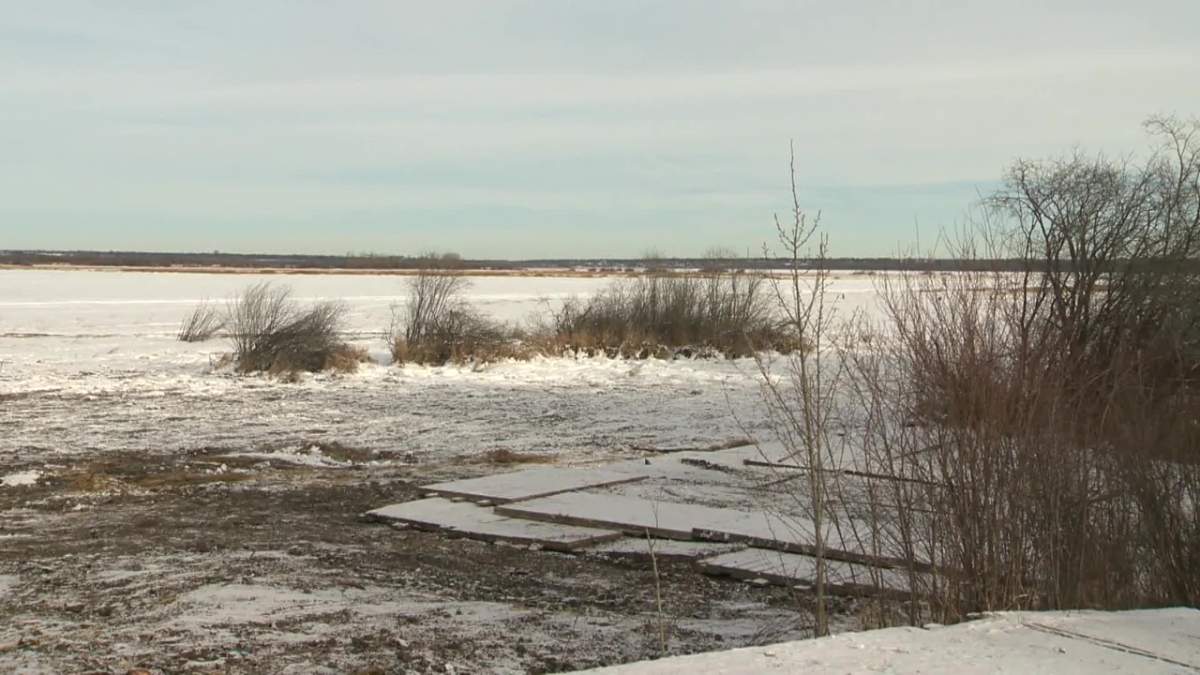UPDATE: On June 28, 2023, AHS said it had lifted the water quality advisory that was first issued for Big Lake in January, saying that “water quality, including fecal bacteria levels, has returned to an acceptable level and the health risk is low for usage of the lake for recreational purposes.”

Almost three months after a pipeline carrying wastewater ruptured and contaminated Big Lake, Alberta health officials are still cautioning against visiting the lake.
Alberta Health Services (AHS) said on Jan. 19 that sewage run-off entered the lake and its shoreline, which is adjacent to St. Albert and Edmonton, causing a water quality advisory.
Now that the weather is warming up and the lake is thawing, AHS is reiterating its warning to visitors to the lake.

Get daily National news
“Elevated levels of fecal bacteria may continue to be present at the spill site and surrounding area on the south shore,” AHS said in a news release Thursday.
“While it is currently unclear how far the run off may extend along the shoreline, the site of the spill was near Range Road 261 at Lakeshore Estates.”

AHS said contact with or ingestion of the water could result in skin, ear or eye infections or gastrointestinal illness. The agency recommends residents don’t consume fish from the lake and don’t swim or wade or allow pets to enter the water.
Those using boats and kayaks are advised to avoid contact with lake water, wash their hands and rinse their boats as soon as possible.
“As always, visitors and residents are reminded to never drink or cook with untreated water directly from any lake or reservoir, at any time,” AHS said. “Water-borne organisms, including fecal bacteria, can cause vomiting and diarrhea.”
AHS said the advisory will remain in place until further notice.








Comments
Want to discuss? Please read our Commenting Policy first.